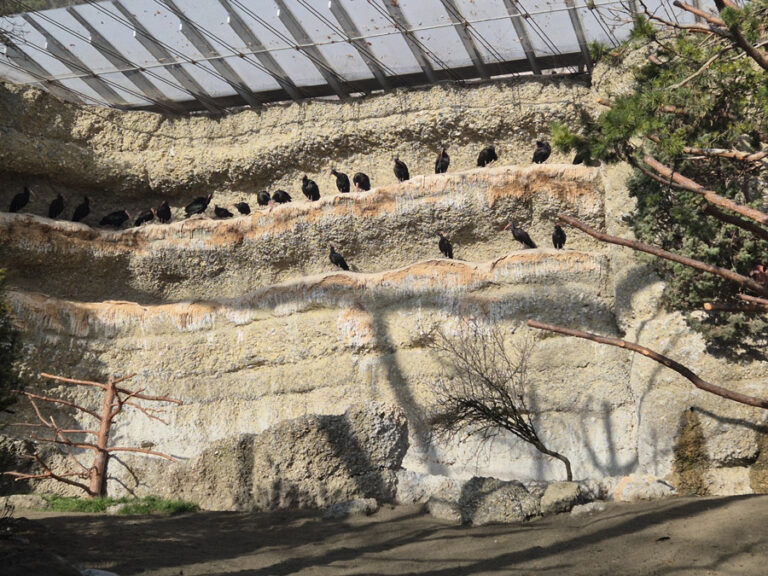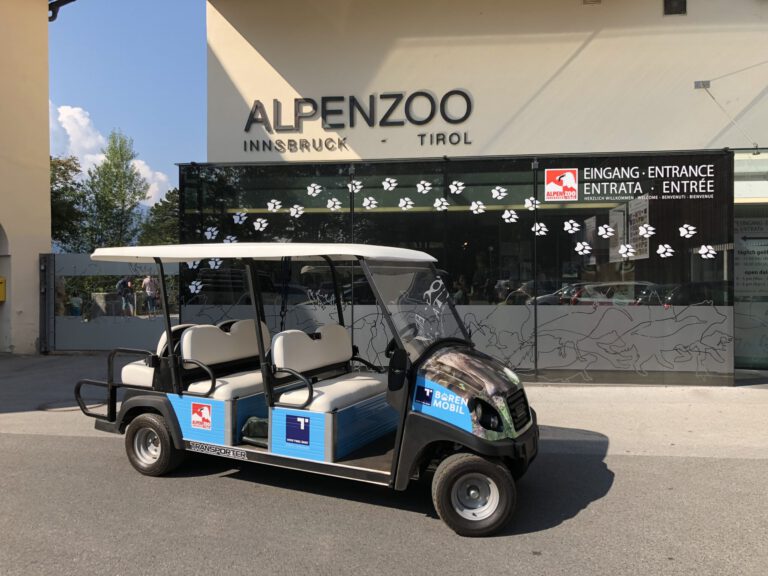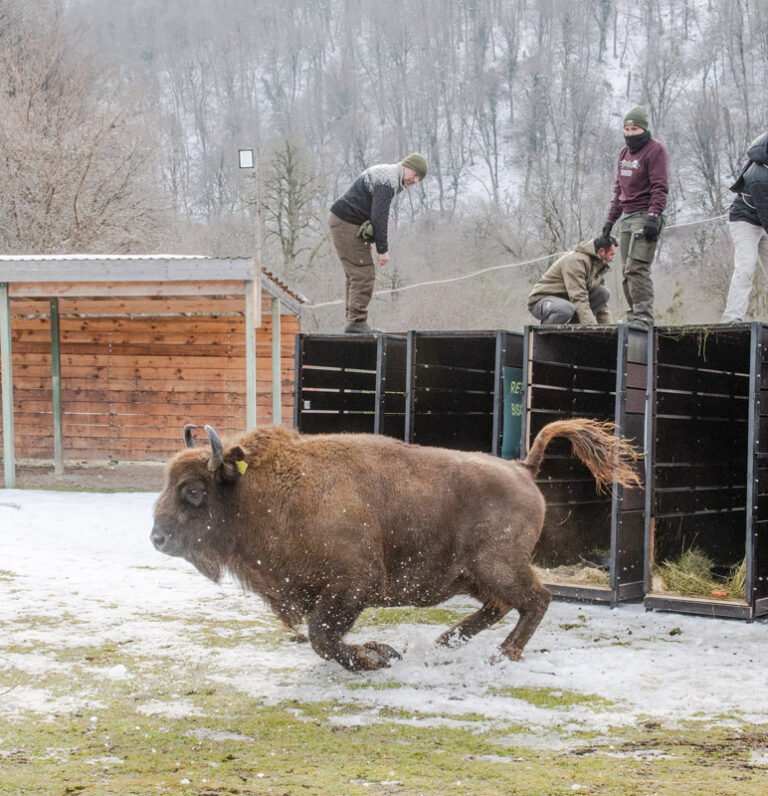In July 2025, two young common ravens from the Alpine Zoo moved to the Cumberland Wildlife Park Grünau with 14 other common ravens that had hatched in zoos or research centres. Together with conspecifics of the same age, they were able to optimally prepare for a life in the wild.
Ravens are intelligent and social: so if they are to be made fit for the wild, they need to be kept company. After a 90-day imprinting phase in the parental nests and the subsequent stay in the release aviaries, this was scientifically monitored by the working group led by Prof Thomas Bugnyar from the University of Vienna. As part of an FWF-funded project, the research team investigated how early experiences influence the development of social skills in ravens.
At the end of August, all the young birds underwent a final health check. They were given individual colour rings and GPS transmitters so that their movements could be tracked once they were released into the wild. After a two-day observation phase, the aviaries were opened - the starting signal for integration into the natural raven population in the Almtal. Since then, the presence and behaviour of the animals has been documented and evaluated on a daily basis - and the GPS data so far shows a pleasing picture: the two Innsbruck young birds, Serles and Ms Hitt, are doing very well. They are still on the move and are behaving as ravens should - a good sign of a successful start to their new life.











